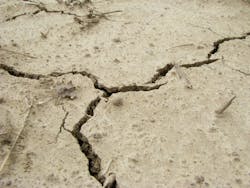Research Links Fracking to Increase in Earthquakes
As reported by Bloomberg, a study from the U.S. Geological Survey indicates that the disposal of wastewater from hydrualic fracturing (fracking) is the possible cause of large numbers of earthquakes that have shaken the central part of the U.S. since 2000.
Researchers think the increased seismic activity may be linked to wastewater injected into the ground by oil and gas drilling operators.
An abstract of the study by the U.S. Geological Survey was published online earlier this month, and the full report will be issued this summer. U.S. Geological Survey researchers found that for three decades prior to 2000, seismic events in the nation’s midsection averaged 21 a year. They jumped to 50 in 2009, 87 in 2010 and 134 in 2011, according to the study.
The study was discussed the same day that the U.S. Environmental Protection Agency released the first regulations to combat air pollution from gas wells.
To read the full article, click here.
Source: Bloomberg
